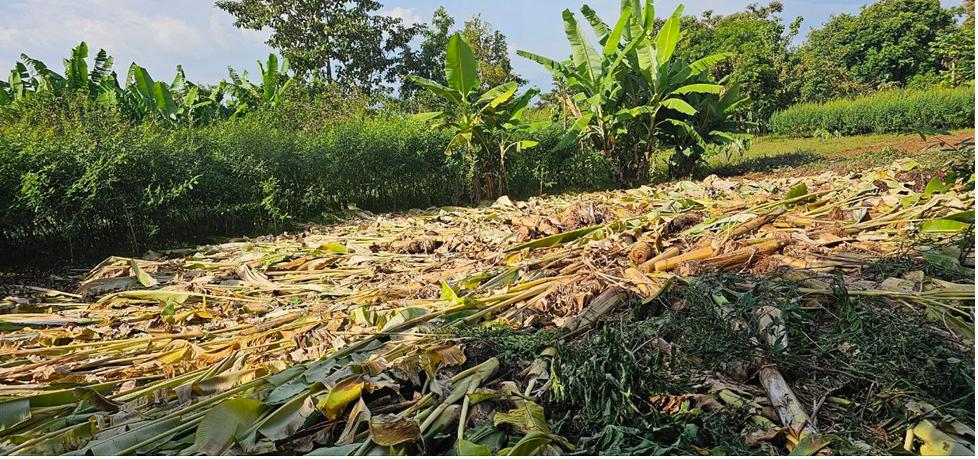
Ethiopia faces increasing challenges from climate change, including erratic rainfall, soil erosion and longer dry seasons. With a rapidly growing population of more than 120 million, the country’s agricultural systems and natural resources are under considerable pressure. To address these challenges, the Scaling Conservation Agriculture-based Sustainable Intensification (SCASI) project, launched in March 2022 and implemented by CIMMYT and CFGB networks with the financial support from the Development Fund of Norway, offers a promising solution. SCASI integrates Conservation Agriculture-based Sustainable Intensification (CASI) practices to improve productivity while conserving natural resources.
The SCASI initiative is an exemplary model of how holistic agricultural approaches can enhance crop productivity, improve soil health, and build resilience to climate change in Ethiopia. Here’s an overview of the project’s key components and impacts.
Key components of CASI
CASI is a comprehensive production system in which conservation agriculture (minimum tillage, covering the soil surface with mulch and use of cereals and legumes in the form of intercropping or crop rotation) is combined with improved seeds, application of recommended organic and inorganic fertilizers, use of best management practices (recommended seed rate, timely weeding, proactive pest management, etc.) to increase productivity per unit area while improving the health of the production environment (soil, climate, fauna and flora and biodiversity). CASI also includes practices that help optimize the mixed crop-livestock systems by reducing the competition for crop residues through the promotion of alternative fodder crops, alley cropping, agroforestry and other locally adapted innovations.
Implementation across Ethiopia
- Targeted Regions: The initiative was implemented in eight districts in the Amhara, Oromia, Benishangul-Gumuz, and South Ethiopia regions, each with unique agricultural contexts.
- Direct Impact: Approximately 15,000 households (more than 75,000 smallholder farmers) have directly benefited, been capacitated, and gained access to sustainable practices that improved their productivity and livelihoods.
- Partnership: Creates a unique partnership between national institutions, international organizations, and NGOs to support and strengthen national capacity to demonstrate and scale up CASI practices. Implements a collaborative and inclusive process in which partners contribute based on their expertise, capacity, and thematic focus.
How do we implement SCASI?
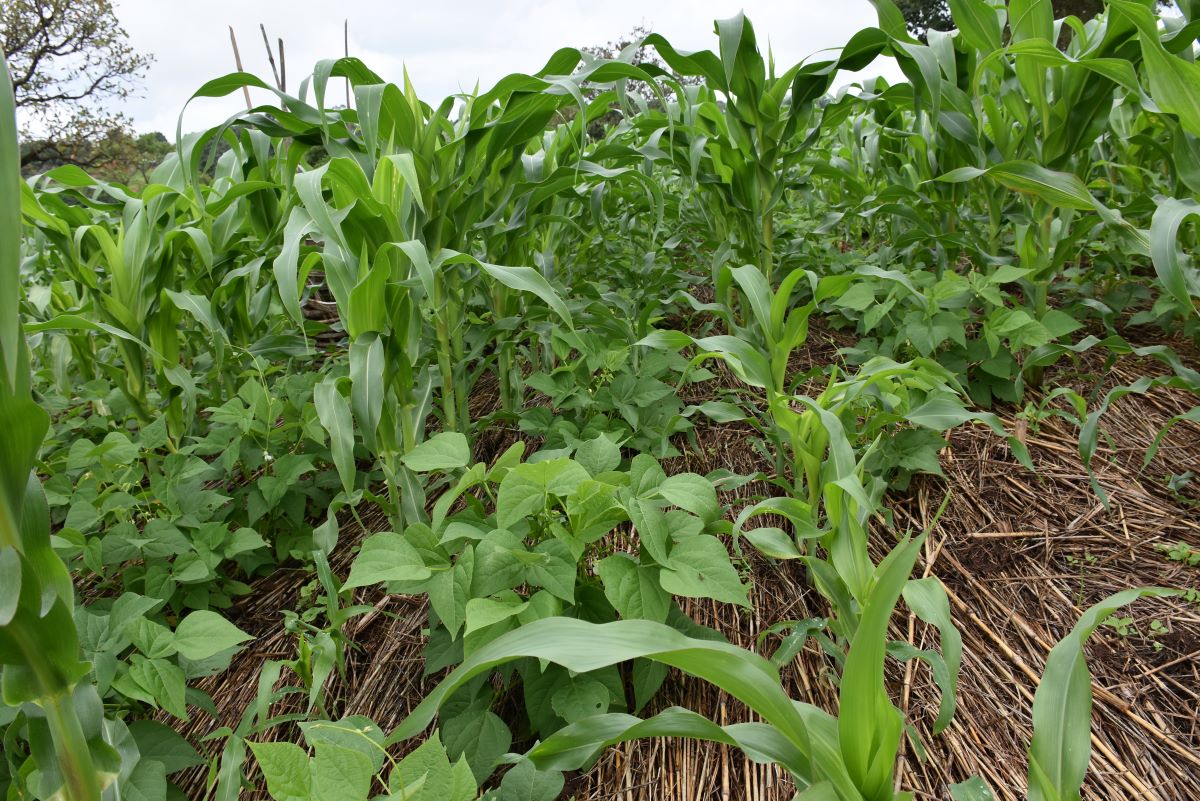
The SCASI project uses an approach that integrates collaborative partnerships, with CIMMYT leading action research, the Ministry of Agriculture and regional offices aligning policy, and NGOs (CFGB, FHE, TDA, MSCFSO) engaging communities. It is supported by a comprehensive implementation framework that includes large-scale demonstrations to illustrate the benefits of CASI, action research to adapt practices to local needs, and capacity building to empower farmers and stakeholders for sustainable adoption and scalability.
CIMMYT’s researchers, provide action research findings that highlight the multifaceted approach of the SCASI initiative, which focuses on context-specific solutions to improve agricultural productivity and sustainability in Ethiopia. Birhan Abdulkadir, SCASI project leader and agronomist at CIMMYT, said, “We conducted a comprehensive participatory assessment to identify the major production constraints in the 40 kebeles and developed site-specific packages from the combinations of CASI practices. These were implemented in mega demonstrations on host farmers plots with close support from CGFB networks and BoAs. We facilitated access to inputs and provided technical backstopping.”
The project also uses farmer-centered approaches to promote the practices. Host farmers train other farmers and share knowledge and skills through farmer field schools (FFS), self-help groups (SHG), various farmer social networks and media. All these scaling efforts are coherent, inclusive and effective in different contexts and have played a crucial role in catalyzing the adoption and scaling up of CASI practices over the past nearly three years.
The merits of SCASI
The SCASI project has had a significant impact in Ethiopia, particularly in helping farmers improve productivity and soil health. As evidence of the project’s effectiveness in addressing the challenges farmers face, Birhan Abdulkadir noted that by adopting minimum tillage and using crop residues as mulch and compost, among other recommended practices, farmers have dramatically increased their maize yields. This approach not only improves productivity and soil health but also saves time on weeding and reduces production costs.
In August 2024, a delegation of donor representatives and implementing partners visited the Benishangul Gumuz Region and Wolaita Zone for a joint monitoring and evaluation field visit. This visit provided valuable insights into the impact of the project in Ethiopia. Interacting with technology adopters and government partners, the team observed positive results and encouraging examples of how the project is improving agricultural practices. These interactions highlighted the benefits of the interventions, reinforcing the project’s effectiveness in improving farmers’ livelihoods and promoting sustainable practices in the region. In total, 3,700 hectares of agricultural land in the Asosa zone are now using SCASI, demonstrating the project’s widespread impact.
Mr. Bobeker Holeta, Head of the Benishangul Regional State Bureau of Agriculture, emphasized the commitment to understanding the SCASI project over the past two years. He highlighted its effectiveness as a sustainable to improve farmers’ food security and climate resilience. As a result, the regional government has decided to expand the use of this technology to cover 50% of the region’s agricultural land. He believes this decision is an important step in supporting farmers and transforming the agricultural system, ultimately leading to a more resilient and productive agricultural landscape.
Mr. Beshir Hitman, a host farmer from Asosa Zone in Akendo Afafri village, has experienced significant benefits from adopting SCASI technology. Starting with just 0.4 hectares two years ago, he has now expanded his operations to 2.5 hectares. Previously, farmers relied on broadcasting and multiple tillage systems, which were effective but labour intensive. Mr Hitman points out that the SCASI methods have not only improved his crop production and productivity but have also saved him time and labor by minimizing weeding.
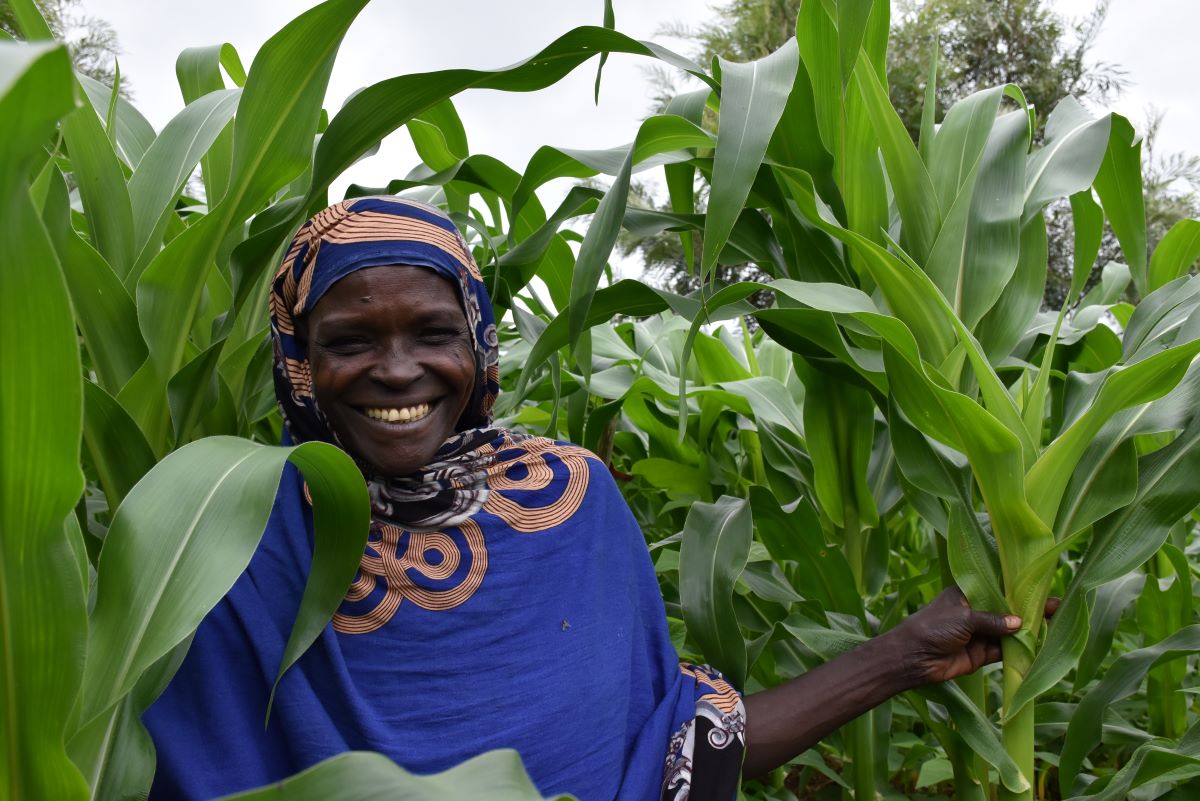
The thriving maize fields of farmer Fantan Karamala in Dunga Arumela village, Ura district, Asosa zone illustrate the effectiveness of the SCASI project. Her commitment has resulted in an impressive six quintals increase in maize yield. By incorporating mulching with crop diversification and expanding her demonstration to 2 hectares, she has successfully intercropped soybean with maize, significantly increasing her income.
Farmers in the Wolaita zone are also inspired by the principles and benefits of SCASI technology. Many have adopted sustainable practices that enhance productivity and improve soil health. The positive impact on yields and incomes has motivated these farmers to adopt innovative approaches, fostering a community-wide commitment to resilience and food security. Their shared experiences highlight the transformative potential of technology in their farming practices.
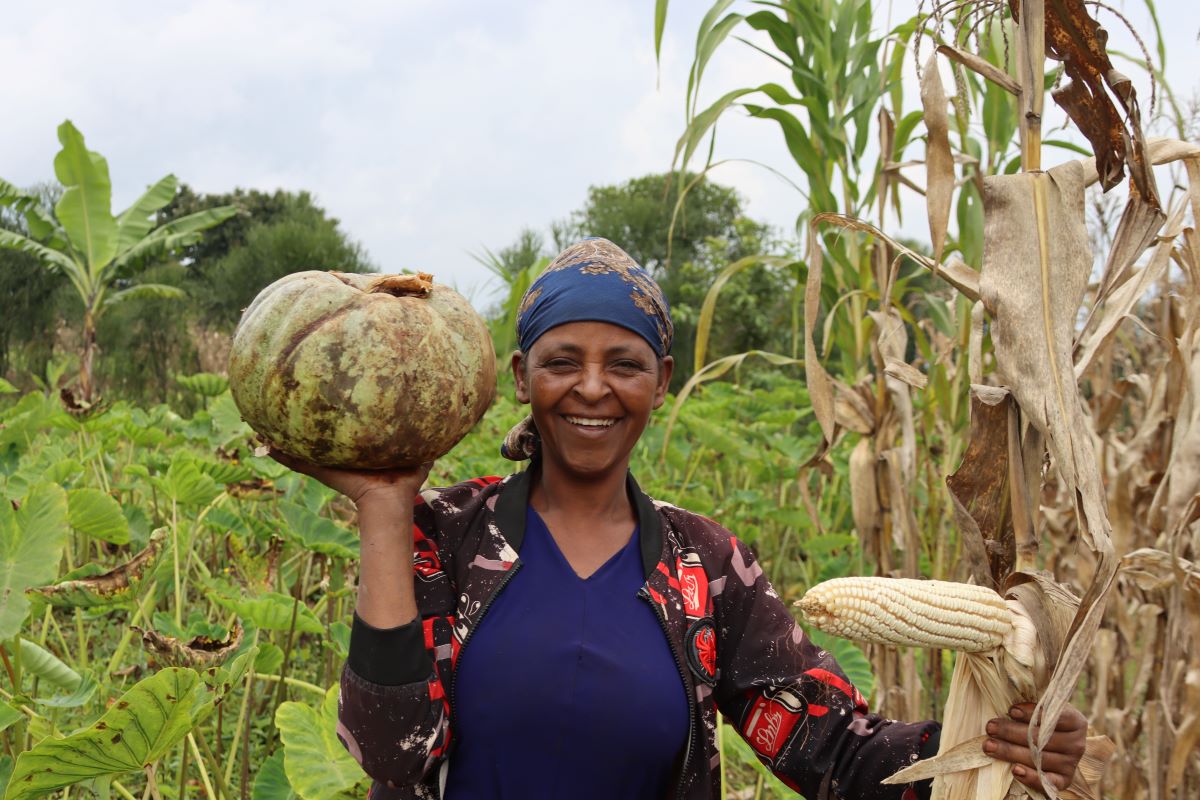
Adanech Bebiso shared her experience, stating, “We began using SCASI after the training we received in 2021. Along with inputs like improved seeds, ginger, taro, sweet potatoes, and forage plants, we also received regular technical support. Previously, using conventional techniques yielded minimal results for many years. SCASI has transformed our operations, and we are reaping the benefits. I started with a 60x40m plot, and my maize harvest increased dramatically from 6 to 16 quintals. This farm has improved our lives in many ways, and we are truly benefiting from this endeavor.”
The reduction of multiple tillage and the production of organic fertilizers, such as vermicompost, have empowered women to become more actively involved in farming. In addition, the availability of fodder has opened up new opportunities for farmers, allowing them to explore alternative businesses such as livestock fattening and dairy production. Many farmers are replacing local cows with improved varieties to enhance milk production and dairy quality.
These changes not only improve the farmers’ livelihoods but also foster social cohesion and build economic capital within the community. For example, the establishment of Self-Help Groups (SHGs) has become a valuable platform for technology transfer, financial savings, and access to credit, further supporting their agricultural and business endeavors.
Host farmers like Amarech Koricho play a key role in their communities by sharing their knowledge. She has trained around 50 fellow farmers in her area about SCASI practices. As a result, these farmers are thriving and actively adopting CASI practices to improve their land management and crop production. Their collective efforts are having a significant impact on sustainable agriculture in the region.
During the joint monitoring visit facilitated by CIMMYT, Tilahun Tadesse, Program Manager of the Terepeza Development Association (TDA), emphasized the advantages of the SCASI approach. He noted that farmers were experiencing higher yields per hectare and greater resilience during droughts compared to conventional methods. He attributed the success of these trials to farmers’ commitment, progressive learning, and increased awareness. The variety of crops grown on the demonstration plots are producing impressive results, further demonstrating the effectiveness of the SCASI project.
Lessons and future directions
Action research conducted over two years in four regions of Ethiopia highlights the potential of SCASI to drive agricultural transformation. By integrating conservation agriculture with sustainable intensification principles, it effectively addresses immediate agricultural challenges while building resilience to the impacts of climate change. This initiative goes beyond increasing agricultural productivity and improving soil health; it also promotes the expansion of social capital and strengthens system resilience. The practices have effectively reached rural communities through various channels, including radio, demonstrating that targeted, long-term promotion efforts increase the uptake of CASI. The tangible successes experienced of early adopters motivate non-adopters to join the movement. Additionally, host farmers play a crucial role in cascading knowledge and practices to their peers, further facilitating the scaling up of CASI practices. By combining sustainable farming practices with community-based solutions, SCASI empowers farmers to overcome collectively address challenges.
Looking ahead, a sustained commitment to institutional capacity building, the integration of CASI-friendly policies into regional and national frameworks, and effective resource mobilization will be critical to sustaining the momentum of SCASI and expanding its benefits throughout Ethiopia. By expanding the initiative’s reach, CIMMYT and its partners aim to foster a more resilient, productive and sustainable agricultural future that adapts to the country’s diverse agro-ecological conditions. This collective effort will not only improve food security but also empower communities to thrive in the face of climate challenges.
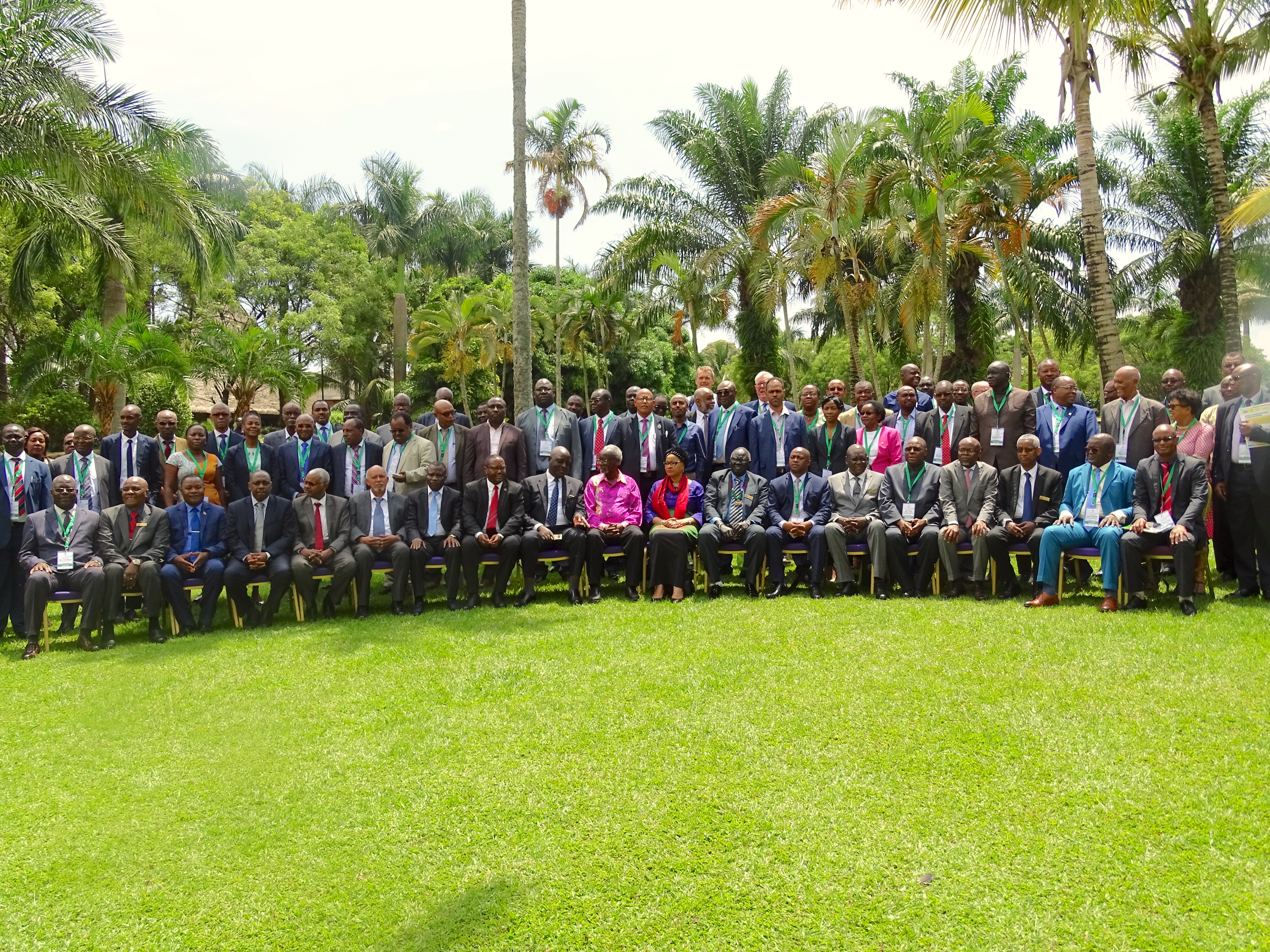
 Climate adaptation and mitigation
Climate adaptation and mitigation